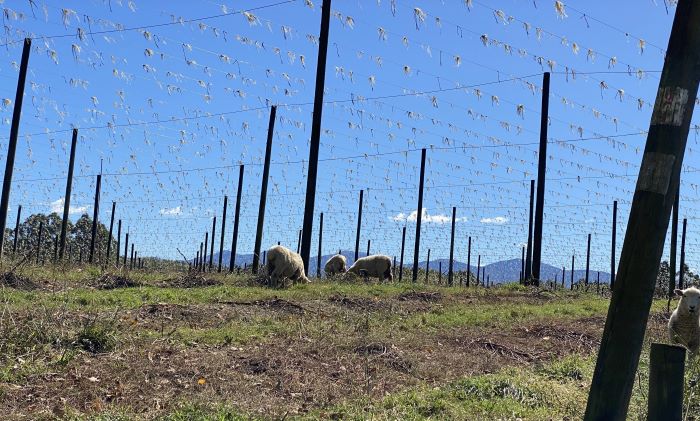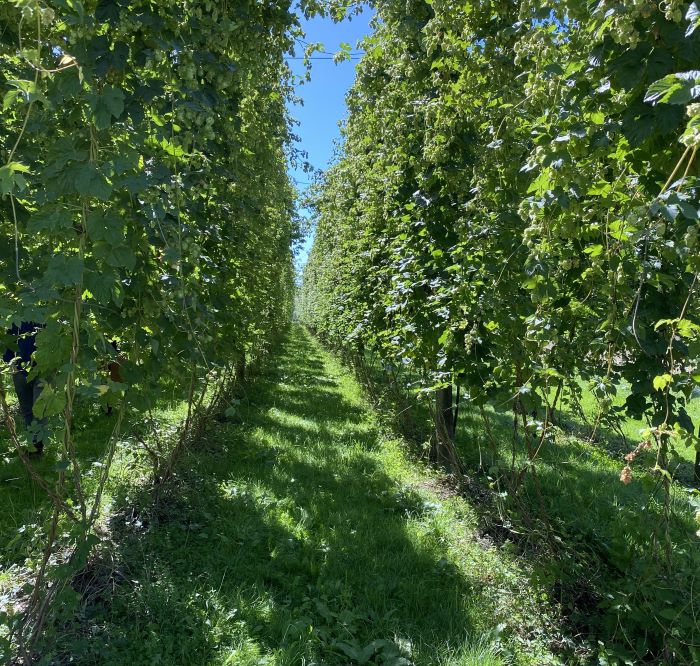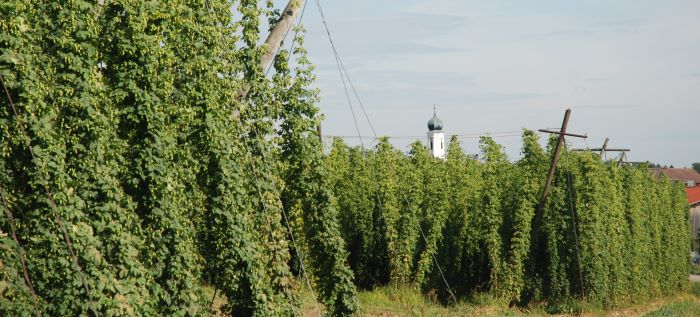From Vol. 6, No. 11 & No. 12, April and May 2023

First up, sheep grazing on a recently harvested field at Freestyle Hops. We arrived in the Nelson region near the end of harvest season, so no picture of the sheep at work. They patrol the hop yards beginning about the time the plants hit the wire, performing three functions: weed control, providing robust amounts of fertilizer, and clearing the lower part of the bine to make picking easier.

Sorry, I could have done a better job of illustrating with this second photo, but it is meant to show what the plants look like after the sheep have done their job. And here you have a of a field in the Hallertau region of Germany. A little different.

Trimming the lower leaves makes it easier to cut the bines when the plants are removed from the field. It also speeds the process when the bines arrive at the picker. “(Thanks to the sheep) it’s easy for these guys to find the tail,” said Hop Revolution co-founder Susan Wheeler, watching workers in the third photo load the bines on hooks before they begin their spin through the picker.
After I posted this in April, I learned a bit more.
Sean Riley, general manager at Freestyle Hops, sent a note explaining the main reason for sheep in the fields is to assist with early two-spotted mite control. Mites start off on the lower leaves and migrate to the top. When the sheep eat those lower leaves, it helps mitigate mite damage.
An American hop grower wrote to suggest sheep in the yard would be in conflict with GLOBALG.A.P., the standard for implementation of Good Agricultural Practices which most US growers are compliant with.
Riley explains the sheep are removed from the yard at least four weeks before harvest at Freestyle, which is NZ G.A.P. compliant. They are returned post-harvest to assist with organic weed control.
He adds, “The sheep are actually lambs grown out for the meat industry so not really sheep that are grandfathered forward into hops.”